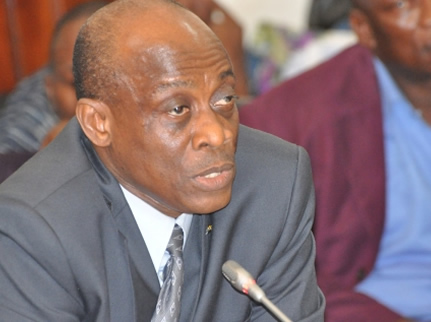Former Finance Minister has challenged president Akufo-Addo’s claim that he stabilised the economy better than former president John Mahama.
Speaking on Wontumi TV on Saturday president Akufo-Addo said that “this is the man (Mahama) who presided over the worst statistics in the economic history of our country, who also picked an economy and oil company and then sunk it into a 3.4 percent rate of growth.”
Seth Terkper disagrees with his assertion as he says that the introduction of the Energy Sector Levy Act (ESLA) project by John Mahama built the economy.
He said this in an interview with Neat FM that “ESLA has brought in nearly 20bn . . . if we have this much revenue why do we still have bailouts not being paid? Why are we issuing bond without interest for five years? This is revenue which was described as a nuisance tax . . . the fact that they (NPP) said they will cancel it . . .so when my President (Akufo-Addo) describes his predecessor as worst . . . “
The Energy Sector Levies Act, 2015 (Act 899) as amended (Act 946), was passed into law in 2015, mainly to address the huge debt burden and operational challenges facing State Owned Enterprises (SOEs) in the Energy Sector, support power generation and power supply sustainability, subsidise premix and stabilise petroleum prices, support road maintenance, as well as fund the activities of the Energy Commission.
According to the current Minister of Finance, Ken Ofori Atta, in a report he stated that “when we took office in 2017, we reduced the electricity levies under the ESLA, from 5.0 percent each on the ppkWh for Public Lighting and National Electrification Levies, to 3.0 percent ppkWh and 2.0 percent ppkWh respectively. This was done to ease the burden of the payment of huge electricity tariffs on Ghanaians and ensure a cheaper and more affordable electricity supply”.
I am passionate about pushing accountability and transparency through my writing.















